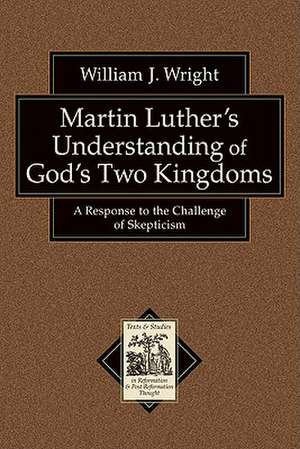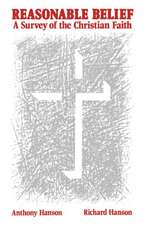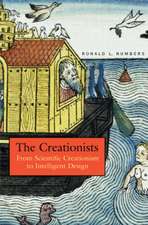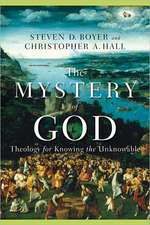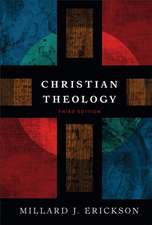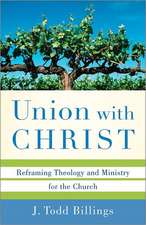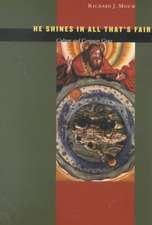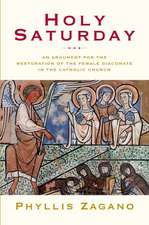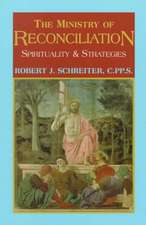Martin Luther's Understanding of God's Two Kingdoms: A Response to the Challenge of Skepticism: Texts and Studies in Reformation and Post-Reformation Though
Autor William John Wrighten Limba Engleză Paperback – 31 dec 2009
Leading Reformation scholar William Wright contends that those who read Luther politically and see in Luther a compartmentalized approach to Christian life are misreading the Reformer. Wright reassesses the original breadth of Luther's theology of the two kingdoms and the cultural contexts from which it emerged. He argues that Luther's two-kingdom worldview was not a justification for living irresponsibly on planet earth.
Preț: 220.65 lei
Nou
Puncte Express: 331
Preț estimativ în valută:
42.22€ • 46.01$ • 35.58£
42.22€ • 46.01$ • 35.58£
Carte tipărită la comandă
Livrare economică 23 aprilie-07 mai
Preluare comenzi: 021 569.72.76
Specificații
ISBN-13: 9780801038846
ISBN-10: 0801038847
Pagini: 208
Dimensiuni: 176 x 229 x 13 mm
Greutate: 0.33 kg
Editura: Baker Academic
Seria Texts and Studies in Reformation and Post-Reformation Though
ISBN-10: 0801038847
Pagini: 208
Dimensiuni: 176 x 229 x 13 mm
Greutate: 0.33 kg
Editura: Baker Academic
Seria Texts and Studies in Reformation and Post-Reformation Though
Textul de pe ultima copertă
The concept of God's two kingdoms was foundational to Luther and subsequent Lutheran theology. Since the middle of the nineteenth century, that concept has been understood primarily as a political one. The most striking example is the Nazi corruption of the concept into a dualism that separated one's activities in the realms of church and state. But is a political reading of the two kingdoms a perversion of Luther's teaching? Leading Reformation scholar William Wright contends that those who read Luther politically and see in Luther a compartmentalized approach to the Christian life are misreading the Reformer. For Luther, both kingdoms were under the laws and rule of God. Wright reassesses the original breadth of Luther's theology of the two kingdoms and the cultural contexts from which it emerged, showing the influence early Renaissance humanism had on Luther. He argues that Luther's two-kingdom worldview was not a justification for living irresponsibly or carelessly on planet earth. "By placing Luther's concept against the background of his confrontation with skepticism, Wright produces a new vantage point for assessing Luther's framework for guiding human action in this world. Luther's insights are shown to be helpful in addressing the biblical view of daily life to twenty-first-century problems. This commends Wright's study to audiences with a wide variety of interests in implementing the Christian faith in our culture."--Robert Kolb, professor of systematic theology, Concordia Seminary, Saint Louis "Too often the two kingdoms are invoked and not understood. That is not the case here. Professor Wright has offered us a learned and revolutionary new assessment of Luther's understanding of the two kingdoms. This book will be required reading for anyone seeking to explore Luther on this topic for years to come."--David M. Whitford, professor of the history of Christianity, United Theological Seminary
